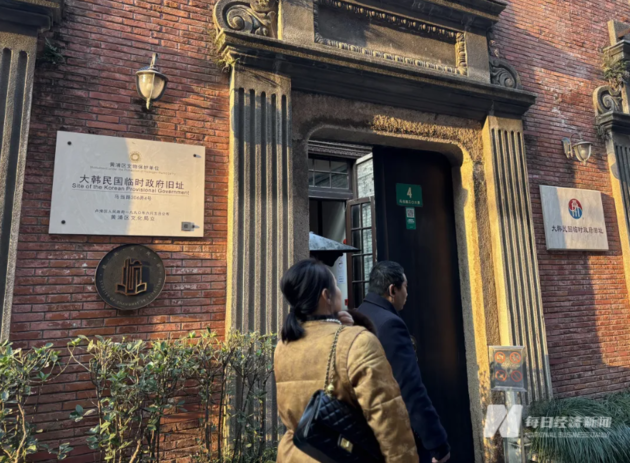
File photo/ Zhang Jian (NBD)
Since China announced a visa-free policy for South Koreans on November 8, 2024, there has been a significant influx of South Korean tourists, particularly in Shanghai. This policy has streamlined the visa process, making China a more appealing travel destination for South Koreans.
The proximity of China to South Korea, with flight times of just one to two hours, coupled with China's relatively lower prices, especially for food, has attracted a large number of South Korean visitors.
Statistics show that in December 2024, the number of South Korean tourists entering China increased by 150% year-on-year, with those heading to Shanghai seeing an 180% growth in appointment numbers. According to data released by Ctrip, from December 31, 2024, to January 1, 2025, the number of inbound tourism orders from South Korea grew by 215% year-on-year.
Previously, obtaining a visa to travel to China was a cumbersome process for South Koreans. The visa application required detailed travel plans and could take over a week, costing nearly a thousand yuan. This deterred many from choosing China as a travel destination. However, the visa-free policy has changed this, making both independent and group travel to China more accessible.
Shanghai has become the top choice for South Korean tourists due to its international reputation and frequent mentions in South Korean culture. The city's historical significance, and its portrayal in media and songs, have piqued the curiosity of South Koreans. Additionally, the ease of finding information on Shanghai through social media platforms has contributed to its popularity.

Photo/Shu Dongni (NBD)
South Korean tourists are also drawn to the affordability of food in China. Comparisons show that fruits, vegetables, and meats are significantly cheaper in China than in South Korea. For instance, six apples cost 92 yuan in South Korea, while in China, 18 watermelons can be bought for 100 yuan. This has led to South Koreans enjoying "fruit freedom" and "meat skewer freedom" in China.
While in China, South Korean tourists are not shy about spending, with a significant portion choosing luxury accommodations during their visits. Their higher income levels, with an average monthly wage of about 3,800,000 won (approximately 22,000 yuan) for a South Korean worker in 2023, allow them to have a more generous travel budget. According to data from Ctrip, nearly 60% of South Korean tourists chose high-star hotels during the 2025 New Year's Eve period.
The rise in South Korean tourism to China has also led to an increase in the number of related travel videos on social media, providing more information and breaking down previous biases.
As more South Koreans visit China, the question remains whether this trend will continue and if these tourists will return for future visits. The visa-free policy has undoubtedly opened the door for a new chapter in China-South Korea civilian exchanges, with Shanghai at the forefront of this cultural and touristic exchange.


 川公网安备 51019002001991号
川公网安备 51019002001991号





